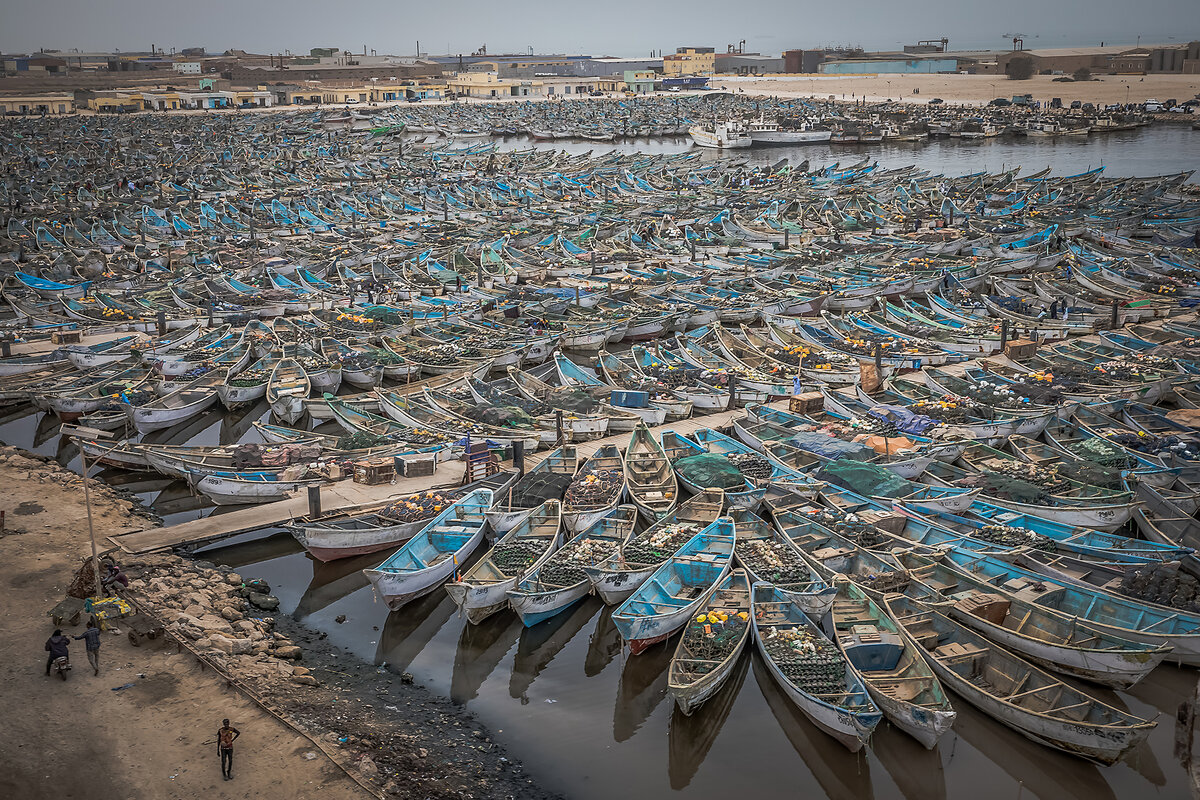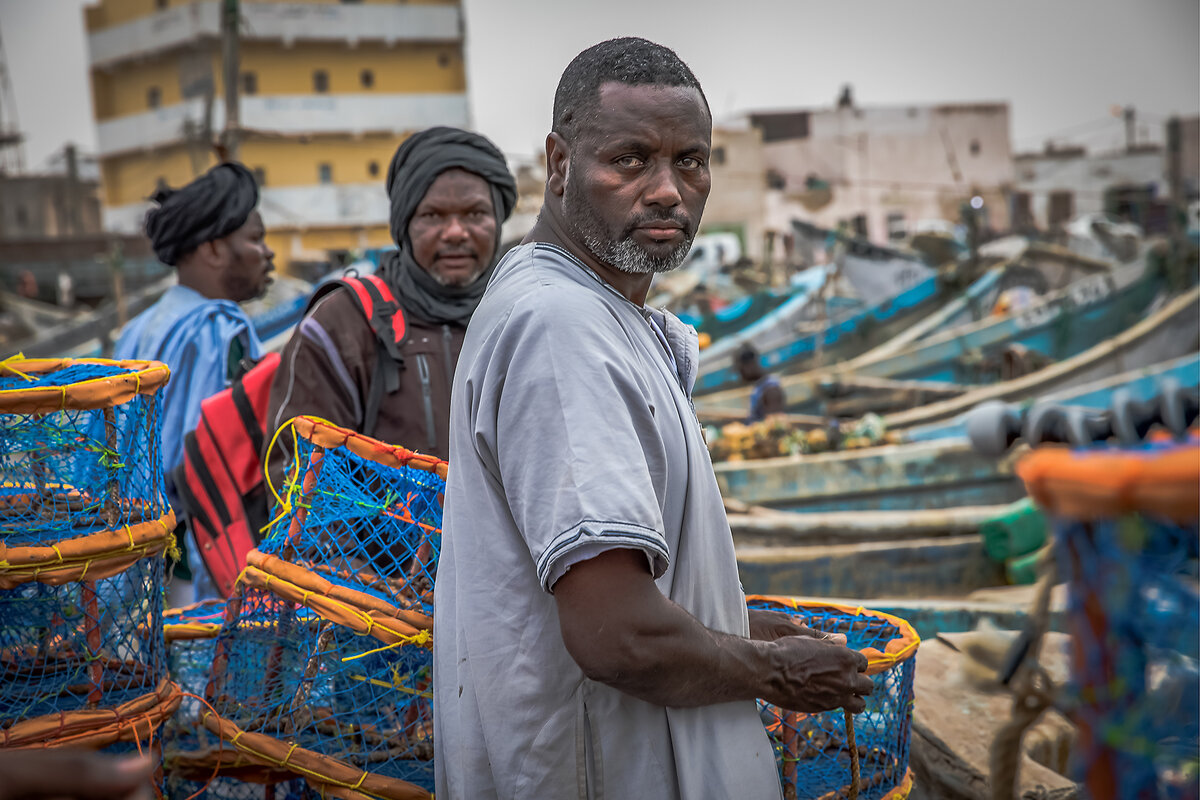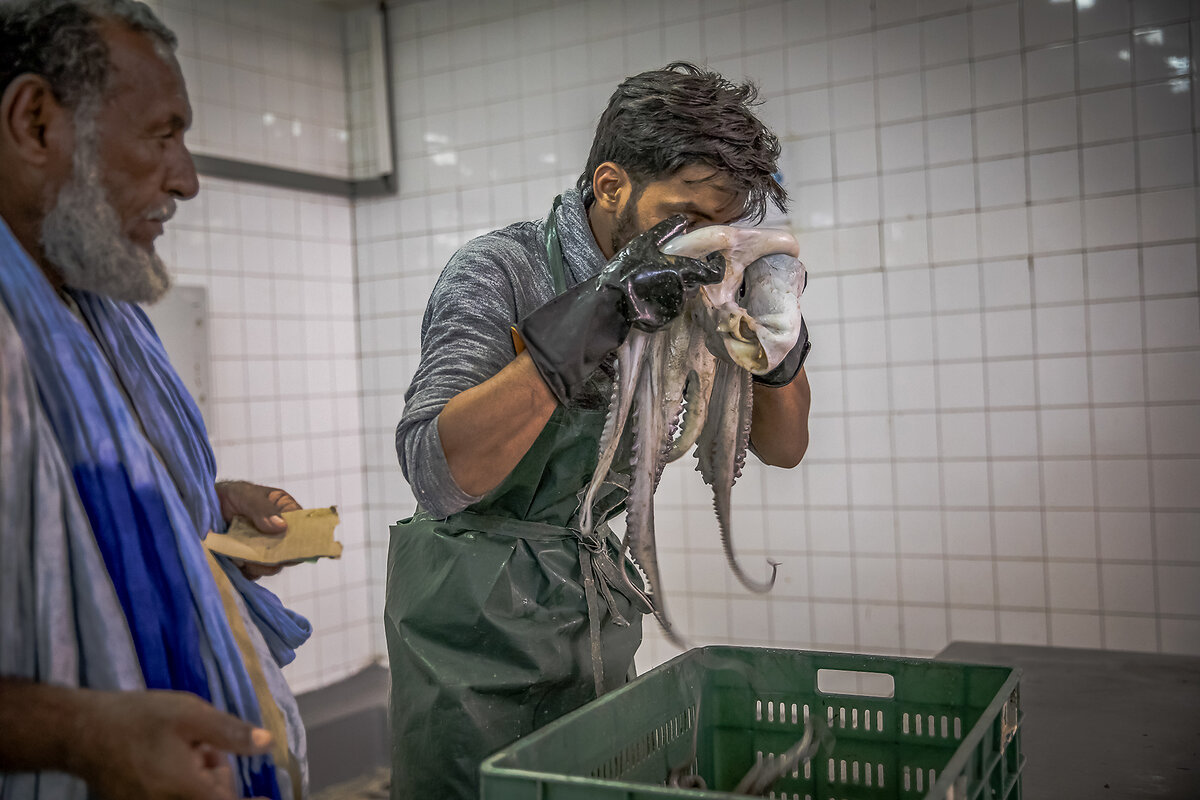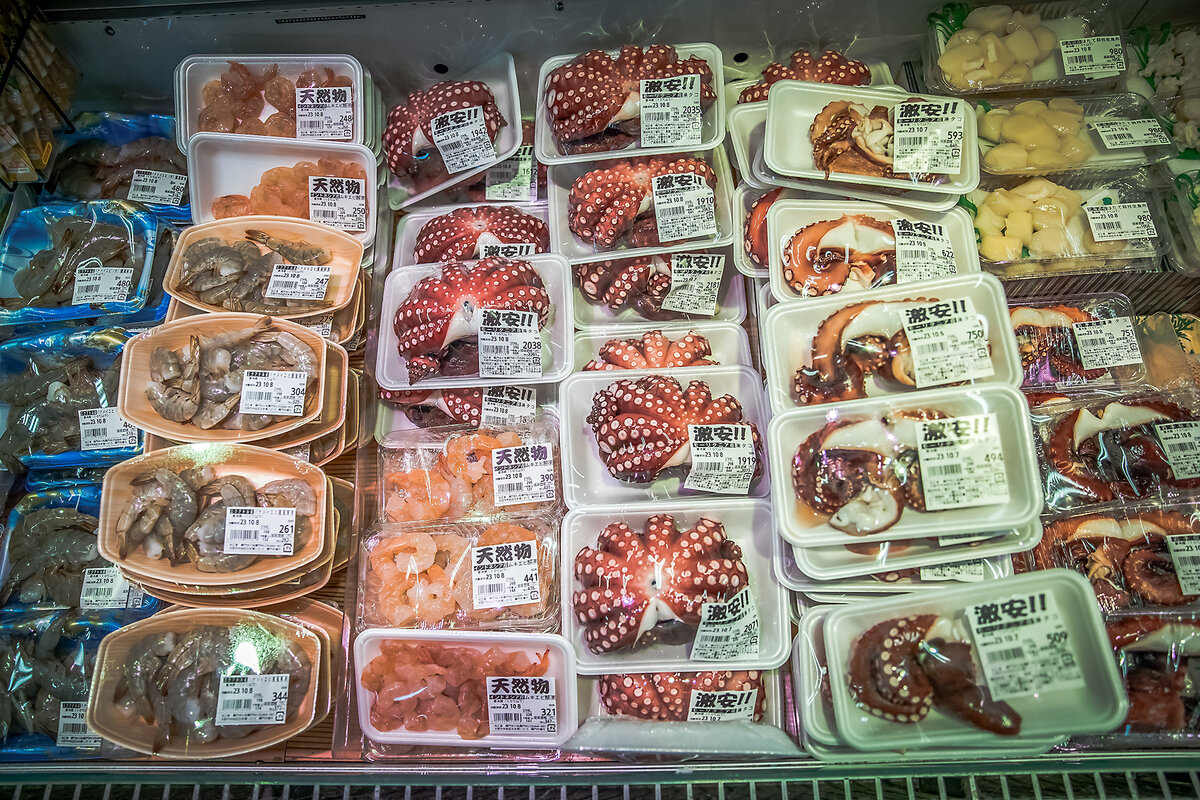Overfishing of Mauritania’s octopus threatens a big industry – and a smart species
Loading...
| Nouadhibou, Mauritania
In Mauritania’s second-largest city, Nouadhibou, 65-foot pirogues painted baby blue fill the harbor. The boats, outfitted with outboard motors and numbering up to 7,500 on any given day, are all aiming for the same catch: the common octopus.
Fifty thousand fishers depend on the West African nation’s octopus trade. In the first quarter of 2023, Mauritanian octopus represented nearly 40% of Japan’s total importation of the delicacy (more than 10,000 tons). In Nouadhibou, residents don’t use the French, Spanish, or Arabic word for octopus. They use tako, the Japanese one. The highest standard for octopus is “Japan quality,” according to fishers and exporters.
The Japanese – and the Spanish – love octopus. People in Osaka adore takoyaki, battered balls with octopus inside. Small bars in Tokyo, izakayas, serve up octopus deep-fried or as sashimi. In the Galicia region of Spain, a boiled tentacle spiced with hot paprika – pulpo á feira – is deeply ingrained in the culture.
But trouble looms. Beyah Meissa, of the Mauritanian Institute for Oceanographic Research and Fisheries, says the fishing industry has “overexploited” the octopus stock, despite a national quota system in place since 2016. “There has been an increase in the number of boats fishing for octopus here because the price is also going up,” Dr. Meissa says. He adds that fishers have been “catching much more than they should.”
Overfishing threatens more than Mauritania’s $313 million octopus industry. The common octopus is considered the most intelligent invertebrate. It has 500 million neurons, most of them in its arms. It can solve puzzles, use tools, and even dream, according to researchers.












